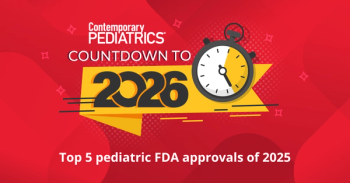
Drug testing and the pediatrician
It’s a delicate and potentially volatile topic: testing for pediatric drug abuse. So, how is a physician to walk this high wire, assessing patients and providing care while respecting and protecting those patients’ rights, especially when those patients are minors?
It’s a delicate and potentially volatile topic: testing for pediatric drug abuse. So, how is a physician to walk this high wire, assessing patients and providing care while respecting and protecting those patients’ rights, especially when those patients are minors?
Sharon Levy, MD, MPH, FAAP, Lorena M. Siqueira, MD, MSPH, FAAP, and the American Academy of Pediatrics (AAP) Committee on Substance Abuse examined those issues in their clinical report, “Testing for drugs of abuse in children and adolescents,” appearing in Pediatrics, June 2014.1
The study authors note that because pediatricians are on the front lines for deterring, delaying, detecting, and diminishing the use of drugs by children, those care providers must understand and be prepared to address these often delicate and highly charged issues.
Part of the balancing act occurs in understanding that the need to obtain a drug test must be balanced with protecting an adolescent’s rights and privacy. The AAP and many other national organizations consistently caution against involuntary drug testing in adolescents. To that end, if the pediatrician feels unable to attain a reasonable balance, he or she may consider forgoing a drug test and basing clinical decisions on history and physical examination alone.
Drug testing of a competent adolescent without his or her consent is, at best, impractical and without his or her knowledge is unethical and illegal. Adolescents should be engaged in their own care and, in most states, can consent to substance abuse treatment on their own, and be fully informed of how information will be obtained and disseminated. The AAP believes it is best to share that information with the patient before the testing is obtained.
If an adolescent refuses to consent to sharing the drug test results with a parent, then those results should not be shared, even if the patient’s parents requested the testing. The onus is on the pediatrician to explain to the parents the son or daughter’s nonconsent for release of the results. Of course, if the pediatrician believes that an adolescent’s behavior puts him or her at acute risk of harm to self or others, the physician should consider breaching confidentiality.
When a decision is made to proceed with testing, factors including type and timing of testing, chain of notification, and ensuring integrity of the patient’s rights must all be considered. According the authors’ report, adolescents who report heavy use, particularly of marijuana, are likely to have a positive drug test result even several days to weeks after termination of use. In these cases, a period of monitoring until a negative test result is obtained may be useful. Quantitative tetrahydrocannabinol (THC) concentrations may be followed to distinguish between prolonged excretion and ongoing drug use.
In summary, the authors note that drug testing alone should not be used for making a diagnosis of a substance use disorder. Instead, multiple factors-including test results-should be used collectively and in conjunction with obtaining a thorough history and physical examination. Signs and symptoms of a mental health, behavioral, or substance use disorder should not be dismissed (or attributed to) solely on the basis of drug test results or the ability to obtain such testing. Such symptoms always require further evaluation, including possible specialist referral if warranted.
REFERENCE
1. Levy S, Siqueira LM; Committee on Substance Abuse. Testing for drugs of abuse in children and adolescents. Pediatrics. 2014;133(6):e1798-e1807.
Newsletter
Access practical, evidence-based guidance to support better care for our youngest patients. Join our email list for the latest clinical updates.








